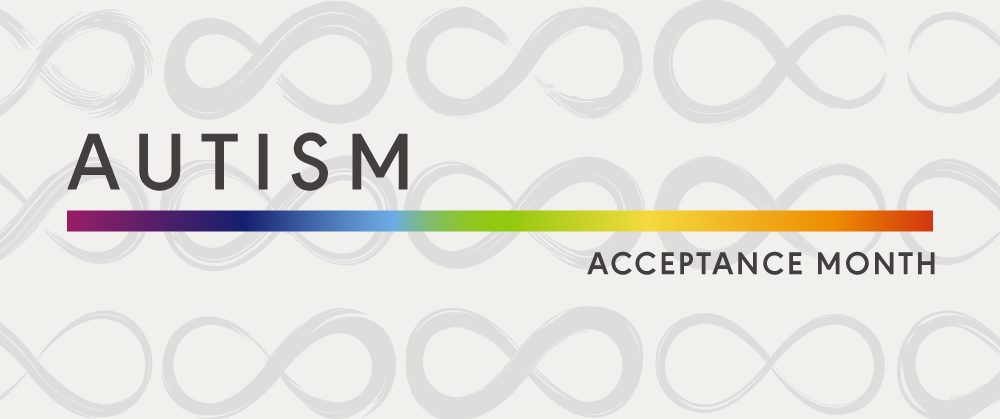For more than 50 years, professionals have recognized April as a month to spread awareness and share resources about autism. ASHA’s speech-language pathologists (SLPs) help thousands of autistic people communicate every year and provide important resources for children newly diagnosed with autism.
As we’ve done in the past, we’re honoring Autism Acceptance Month by highlighting a handful of the more than 30 articles published in the ASHA journals on autism since last April. Check out highlights from all five ASHA journals for individuals in a variety of job settings below!
Autistic Children and Their Caregivers
Involving Caregivers of Autistic Toddlers in Early Intervention: Common Practice or Exception to the Norm? Children learn language through interactions with their caregivers—meaning that caregivers must be involved in planning and implementing early intervention in autistic toddlers. In this study, the authors surveyed collaboration between caregivers and SLPs and provided tips that help SLPs optimize a family’s capacity to support their child’s development.
Associations Between Caregiver Stress and Language Outcomes in Infants With Autistic and Non-Autistic Siblings: An Exploratory Study: Caregivers of autistic children present with high stress levels, which have been associated with poorer outcomes in child language development. In this study, the authors explored how caregiver stress was linked with later language outcomes of infant siblings of children with and without autism.
More Resources for Clinicians Working With Autistic Patients
Effectiveness of the SCERTS Model–Based Interventions for Autistic Children: A Systematic Review: Social Communication, Emotional Regulation, and Transactional Support (SCERTS) interventions have been shown to support developmental skills of children diagnosed with or at increased likelihood of autism. In this review, the authors suggested areas for further research on SCERTS to draw firm conclusions about its effectiveness in improving skills for children and implementers.
Sound Tolerance Conditions (Hyperacusis, Misophonia, Noise Sensitivity, and Phonophobia): Definitions and Clinical Management: Noise sensitivity and other sound tolerance issues are common in people with autism. This article defines a number of sometimes overlapping sound tolerance conditions and provides audiologists with the latest recommendations for clinical management.
Autism in the Kingdom of Saudi Arabia: Current Situation and Future Perspectives for Services and Research: Autism is gaining more attention and recognition in Saudi Arabia; this increased focus will ultimately lead to more opportunities to provide high-quality service at diagnosis and intervention. The authors discuss the importance of Saudi Arabia as a leader for autism research in the Middle East.
Feeling Thrown for a Loop? The Effects of Inferencing on Spoken Language Idiom Comprehension in Autism: Figurative language differences are a hallmark feature of autism, causing idioms that are used every day to be interpreted literally. This can lead to negative social and academic outcomes. In this study, the authors found that autistic children can use inference from context to deduce these everyday idioms. This article offers recommendations for improving idiom comprehension in the clinic.
Sharing Your Commitment
We share your commitment to helping people with autism communicate and advocating for these individuals on a daily basis. We hope that Autism Acceptance Month gives you an opportunity to reflect on ways you can better mold your practice and your personal world to increase autism acceptance.
As research moves forward and attitudes about people with autism change, ASHA Journals is dedicated to publishing the latest findings to help our members. In addition to the dozens of articles published annually, our journal editors have stayed up to date on evolving terminology and have included the voices of autistic people in their articles, including as coauthors. Keep up with all five of ASHA’s journals as we continue to publish the latest resources for ASHA members working with autistic individuals!







